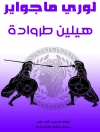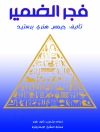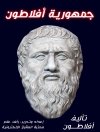Tabela de Conteúdo
I-VI — Preface — Contents — Epic and Lyric Poetry — Originality and Intentionality — “A Thousand Shapes of Death”: Heroic Immortality in the Iliad — Is Hector androphonos? — Form und Funktion des Weltaltermythos bei Hesiod — Sappho’s Circumstances — Sappho and Acheron — Kynaithos, Polycrates, and the Homeric Hymn to Apollo — Pindar’s Myths: Two Pragmatic Explanations — ??? ???????: Pindar, Nemean 5.22 — Poetry as Pharmakon in Theocritus’ Idyll 2 — Drama — O suitably – attired-in-leather-boots. Interpolations in Greek Tragedy — Attossa’s Absence in the Final Scene of the Persae of Aeschylus — A Problem of Attribution at Aeschylus Supplices 1055: Stephanus’ Source — Recognizing what when and why? The Recognition Scene in Aeschylus’ Choephori — Yielding to Forethought: Sophocles’ Ajax — On the ‘Eye’ and the ‘Phallos’ and Other Permutabilities, in Oedipus Rex — Sophocles, Electra 1087; Text and Context — A Note on Lions and Sophocles, Philoctetes — Solar Imagery and Tragic Heroism in Euripides’ Hippolytus — Helen and Persephone, Sparta and Demeter. The ‘Demeter Ode’ in Euripides’ Helen — Iphigeneia in Love — Sacrificial Ritual in the Bacchae — “Let Them Eat Cakes” – Three Food Notes to Aristophanes’ Peace — Boy Actors in New Comedy — Optatives of Consent and Refusal — Society and History — Hero Cult in the ‘Age of Homer’ and Earlier — The Athenian Law against Hybris — Polis Tyrannos: Zur Entstehung einer politischen Metapher — Leonidas the Regicide? Speculations on the death of Kleomenes I — Imperialism and Stasis in Fifth Century B.C. Ionia. A Frontier Redefined — Thucydides 2.65.12 — The Arche of Thucydides’ War — Poseidon Hippios am Kolonos und die athenischen Hippeis — Greek Rhetoric and History: the Case of Isocrates — Antigonus Surnamed Gonatas — A Metrical Epitaph from Phrygia — Philosophy — “Nothing” as “Not-Being”: Some Literary Contexts That Bear on Plato — Stars, Unseen Bodies and the Extent of the Earth in Anaxagoras’ Cosmogony: Three Problems and Their Simultaneous Solution — Justice and Temperance in Republic IV — Socrates’ Prayer to Pan — The Acquiring of Philosophical Knowledge According to Plato’s Seventh Letter — How Credible are Plato’s Myths? — Theophrastus on Fate and Character — History and Philosophy in Plutarch. Observations on Plutarch’s Lycurgus — Plutarch as Molten Bronze: the Comparison at Amatorius 752D — Themistius, The Last Peripatetic Commentator on Aristotle? — Xenophon of Ephesus and the Antithesis Historia-Philosophia — Aftermath — Some Loose Ends. A Metrical Note on Horace’s Satires — Horaz II 13 — Seneca’s Medea: The Elusive Triumph of Civilization — Kaltblütiges Schnarchen. Zum literarischen Hintergrund der Vesuv-Briefe des jüngeren Plinius — A New Papyrus Codex of the Sortes Astrampsychi — Ovid’s Metamorphoses, Planudes and Ausonians — Marginalia Utopica. Acht Bemerkungen zur Utopie des Thomas Morus (1478–1978) — Plates — List of Plates — 470-472












